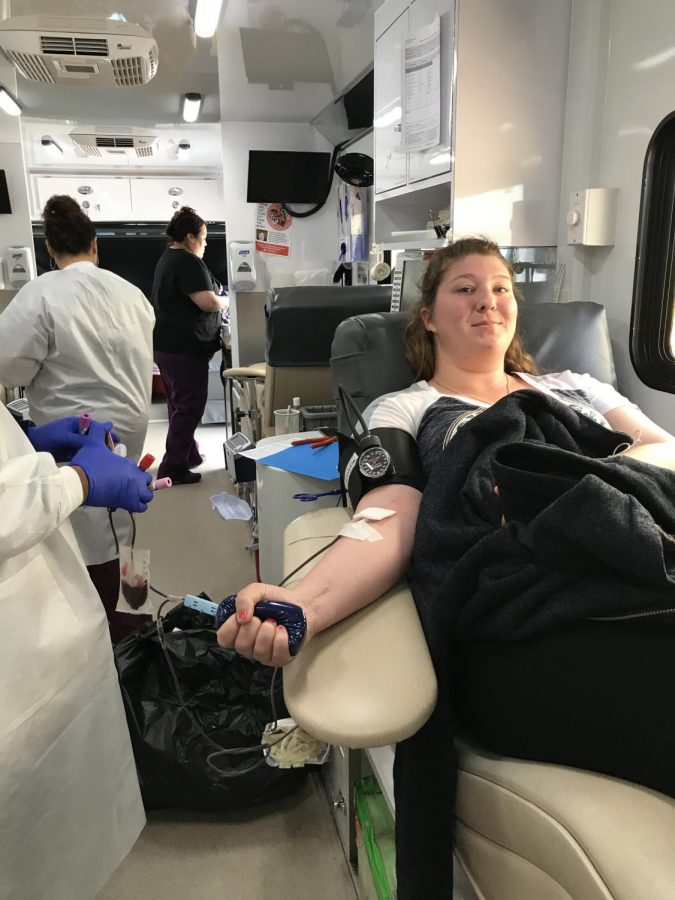The San Diego Mesa College Honors Club partnered with the San Diego Blood Bank on March 14 and 15 to hold a blood drive on campus. The truck provided by the blood bank, located on the side of the Learning Resource Center, allowed students to conveniently and privately donate with no appointment necessary. Students were only required to fill out a brief medical survey beforehand.
This is the third year the Honors Club has held a blood drive on campus. Aleah Jarin, president of the Honors Club said, “each year we’ve been able to attract more people than the last and this year we decided to have it for two days, to try and get more people and help collect as much blood as possible to give back to the San Diego blood bank.”
While the idea of donating blood might seem daunting to some students, nurse Suzanne Peralto said, “It’s really easy, it’s not scary…you just have that little pinch, and then you don’t feel anything while they’re taking blood. It’s generally pretty much as easy as that.” Peralto also recommended that anyone donating blood should come well hydrated and with a full stomach. She also mentioned that drinking caffeine can constrict the veins, making the process not as easy and possibly less enticing.
Mesa student Katiana Lopez, who tries to give blood when the opportunity is available and has donated on at least four occasions, also agreed that donating blood is not a difficult process. Lopez said, “It’s really not that bad. I mean, the prick on your finger that they give you hurts more than donating the actual blood. Even then, it’s a pinch and then you don’t feel it.”
Donating blood is not only beneficial to the health of the recipients, but to the donors as well. After donating blood, donors will receive their donor ID in the mail. Nurse Akeshia Climons mentioned that with a donor ID card, donors will be able to log in to the San Diego blood bank and see their profile. In their profile, donors can see their , “Cholesterol readings, hemoglobin readings, your blood pressure, so you get to keep track of that over time.” Each time a person donates blood, they also accrue points. Climons said, “it’s basically a give back, that we give back to the donors for coming in and taking their time to help someone else.” The points allow you to buy certain items such as movie tickets or restaurant gift cards.
After donating, donors were offered snacks and beverages and asked to stay for a few minutes where nurses could monitor in case of dizziness. The entire process from start to finish took about an hour. All students interested were encouraged to donate, whether they were experienced or donating for the first time.

